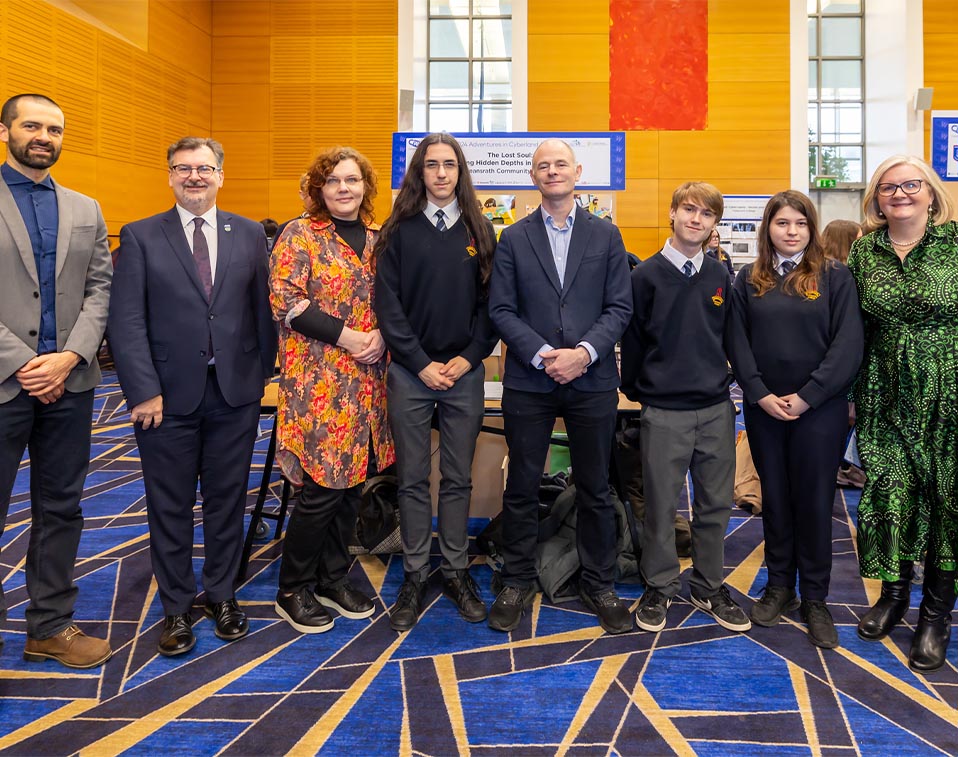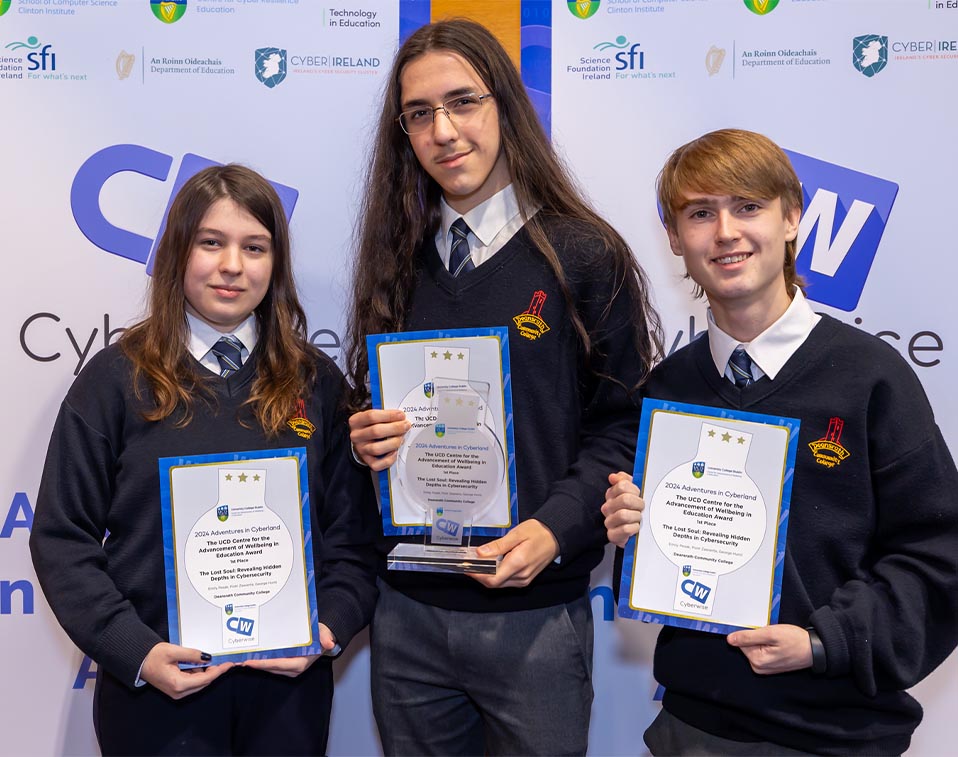Cyberwise At Deansrath Community College
Success of Deansrath Community College TY students at the Adventures in Cyberland Awards at UCD

November 2024 was a hugely successful month for TY students Emily Pesak, George Hurst and Piotr Zawierta, who submitted their project “The Lost Soul: Revealing Hidden Depths in Cybersecurity” for the Adventures in Cyberland Awards, organised by Marelle Rice of Cyberwise under the leadership of Dr. Rachel Farrell.
Cyberwise, under the UCD Centre for Cyber Resilience Education, enhances cybersecurity education across Ireland. Over 300 students attended the awards at O’Reilly Hall, University College Dublin, on December 10, 2024. The event celebrated advancements in cybersecurity education, promoting inclusivity and challenging gender bias.
The students’ project showcased a brilliant, from-scratch animation and included a thoughtfully written piece exploring addiction to cyberspace and its profound impact on our mental well-being. For their fantastic work, they were awarded the Gold Medal of the prestigious UCD Centre for the Advancement of Wellbeing in Education Award and won the Best Presentation Award.
The event featured experts from Microsoft, the National Cyber Security Centre Ireland, and leading universities, giving students a chance to connect with their peers from other schools as well as with potential mentors and industry leaders.
Hear directly from the students:
What made you choose to explore the link between cybersecurity and mental health in your project?
Emily: Mental health is one of the most important topics of our current age and another one is the internet/cybersecurity. Both of these topics are massively debated and have many overlaps and relations that made it easy to explore as a topic. Because the internet is still quite new – and it’s not something we as a species were designed for – we are witnessing and studying the effects the internet has on the human psyche in real-time. What we have found is that the internet can bring addiction and grief to many. Addiction is a very misunderstood topic in my opinion, and we are seeing now more than ever (thanks to the addictiveness of the internet) that it’s a pitfall anybody can fall into. We felt that was a topic worth exploring – even briefly.
How did you work together as a team to create your project, and what part did each of you play?
Peter: It all began with brainstorming. Discussing stories, tales, recalling fables we were told as children. We wanted to raise awareness through these stories that we were so invested in, the ones that really resonated with us. We then discussed mythology, and we settled on the perfect choice, the Myth of Narcissus. And that’s where it really got up and running. We began creating storyboards, concept sketches of the characters while also figuring out how we will shape the story to fit our themes and topics we wanted to portray. We settled on roles; I worked on Narcissus, how to bring him to life and how to picture his health deteriorating as his addiction grew. George worked on the art of Psyche and how to illustrate her change in emotion. And Emily, who I believe worked the hardest as she was not only our background designer but also our animator! But I think the most important part of working together was communication, looking out for each other, giving each other help, suggestions, and support all throughout the process of bringing this project to life.
What do you hope other students and teachers will learn from your project about the effects of cyberspace on mental health?
George: We hope they learn that while having an escape from reality is perfectly okay, losing yourself in these escapes can become dangerous and lead to harm, either physically or mentally. This is illustrated in the perspective of Narcissus, as time passes, he deteriorates more and more until he’s nothing but a husk. Of course, this is exaggerated to fit the story, but the meaning is still present.
What advice would you give to teachers who want to encourage their students to participate in the Awards in the future?
Emily: I want teachers to encourage students to use their unique skillsets for their projects. We were very lucky that one, we were all artists and fans of animation and two, that our teacher was so supportive of these interests. Had we just written an essay or made a PowerPoint we would’ve been bored to death. Yeah, we would’ve still put the effort in, but the fact we were given the opportunity to use our own skills made it a more enjoyable experience and resulted in a more memorable project. Also, let the students explore their own ideas! Teachers should be allowed to pitch in and help point in the right direction, but students should pick their own themes and a topic they’re interested in. Again, it just makes for a more memorable project that had love and passion put into it, rather than a project that felt more like a mountainous task than anything else. Obviously, the student still must stay within the guidelines and themes of the competition, but you get what I mean. Let students express themselves and their interests.
Well done to Emily, George Hurst and Piotr for their hard work and dedication to the project.






